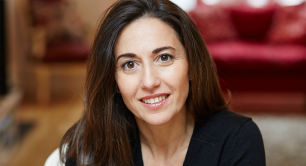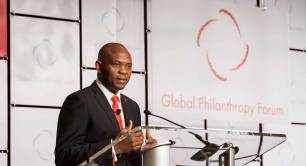2020 vision: making Guernsey the best place to live on earth
While many might have pledged to make healthier lifestyle choices in the new year, successful entrepreneur Marc Winn has set himself the small task of starting a social movement that will make Guernsey the best place to live by 2020.
Ellie Ward talks to him about the project and the advice he has for aspiring entrepreneurs in the run up to the launch of Adessy Associates’ Pioneers for Change programme where he will be speaking in March.
In his twenties Marc helped to set up, lead and then sell off a million-pound vitamin mail-order business. He also dabbled in a London-based e-commerce agency before launching his own website (Marc Winn 'Life Enhancer') and setting himself up as officially self-employed in 2008.
Since 2008, Marc has helped mentor aspiring entrepreneurs and endeavoured to change the thinking around business – rather than focussing on helping people make millions, he says he pushes them to ask how can they impact upon billions.
.jpg) Photo credit: The Dandelion Project
Photo credit: The Dandelion Project
Aligning with this task Marc has also launched the Dandelion Project – which aims to make Guernsey, a small island with a population of around 60,000 that sits in the English channel, the best place to live by 2020.
Pioneers Post: How did the Dandelion Project come about?
Marc Winn: I had this idea for a long time to use some of the mechanisms behind the Apollo Space Programme to see if it was possible to change an entire society by giving it a vision of what it could be.
With the Apollo programme they said they’d put a man on the moon by the end of the decade in the 60s, which was crazy given the technology at the time, but still they managed it.
My friend Jock was the first person to say yes to this crazy idea over coffee, so we decided to make Guernsey the best place to live on earth by 2020 – it was also something of a joke to see if just by standing up and saying something it would actually happen.
PP: In what ways is the Project working to make this vision a reality?
MW: In March this year we launched a TEDx event which was a way of using the brand to bring speakers all around the world together to get them to answer the core question – ‘how can we make Guernsey the best place to live on earth?’
The idea was to inspire the people in that room to make changes to the place we live and for those people to then go on to inspire others. Gradually, we’ve gone from two people having coffee to six people organising an event to 100 people turning up to the event to hundreds of people being actively engaged in projects in the community to actually improve it.
PP: The Project does not claim to find a single island definition of what the best place to live on earth is, rather it claims to be about “creating a lens for every islander to look through, to see the possibility for what they can achieve for their community in years to come”. Can you explain the long-term vision for the Dandelion Project, up to 2020 and beyond?
MW: Government, bureaucracy and fear of change are some of the biggest challenges in making things happen around the world.
Guernsey is one of the world’s smallest bureaucracies so if you’re going to tackle the world’s biggest problem, you’re going to want to do it in somewhere like where we live. In truth, it’s more than just about trying to make Guernsey the nicest place to live on earth, it’s about tackling the world’s biggest problem.
We aim effectively to catalyse more money than government has so that if we want to put in a new health system we can, if we want to put in a new free education system we can.
We run like a social movement, not a charity.
How we spend money at the moment is we bring people from all over the world into our community that have already solved the problems we have. We create social media platforms to bring the community together and host events. We’re kind of an inspiration machine.
PP: The Dandelion Project aims to raise £1m from donations. How is the Project legally structured?
MW: We’ve done everything so far for free. We don’t actually exist. We are working to show what you can achieve with nothing. We don’t need to crystallize until we have money – but we also designed it in a way that we can keep going without it.
We’re set up like a Silicon Valley organisation so we’re able to make rapid decisions several times a day. We run like a social movement, not a charity. One of the problems with charities is that you have all these committees and they can’t really take risks.
We essentially look for high networths that look us in the eye and truly understand what we are trying to do and why we are doing it. This is not a traditional pitch conversation. We’re aiming to accelerate a small amount of seed capital to really accelerate the power of every other bit of money that is spent.
PP: What have you learnt from going through the process of setting up and running businesses?
MW: The biggest lesson is that people build businesses to live a life at some point in the future and they fit their lives around their business.
The truth is it is very hard to succeed that way – most businesses fail. You have to build a remarkable life and then monetise that, rather than build a business to live a life.
Marc's key advice
- Custom fit everything around who the individual is and build the business in that way. The way you would build a business based on your history, personality and passions would be completely different to the way I would build a business because, ultimately, we all have strengths and weaknesses and different passions that make us get out of bed, so to follow someone else’s rules would be fundamentally missing the genius within you.
- Ask what is the one thing you would change about the world if there were no limits and then ask what is the barrier stopping that being achieved. Usually, the best place for a social entrepreneur to start building a business or an organisation is to tackle that barrier.
- Put your personality into everything you do. I’m odd, mischevious, so the way we do things tends to be pretty playful and fun. At this stage I refuse to set up an organisation because it amuses me to see how far you can get without one. We break the rules for the pleasure of taking the opposing view but that is kind of what inspires and engages people.
Pioneers Post is a media partner for the Pioneers for Change six month leadership programme which starts on the 23rd and 24th March. It aims to connect and equip international wealth holders and inheritors, entrepreneurs, investors, senior executives, career changers and talented thinkers with the skills to create social and environmental impact.
Photo credit: Luke Gray



